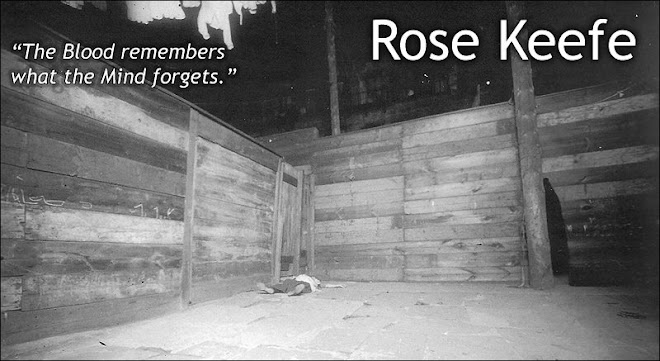Thank you to the administrator of the McMinnville, Oregon Public Library blog for the following review of 'The Starker':
Much like Rose Keefe’s earlier works Guns and Roses: The Untold Story of Dean O’Banion and The Man Who Got Away: The Bugs Moran Story, The Starker is quite an achievement in historical research. Unlike some of her contemporaries in the true crime field, Keefe does not simply reexamine documents well-worn by other researches and conjure up a different conclusion. Keefe does her leg work, often finding documents no one thought to look for and gathering testimonials from the person of interest’s friends and family members, who’s voice up to that time had not been heard. Because of this, long-held beliefs about criminals of yester-year fall away, leaving the reader with a well-rounded, human rather than caricatured, picture of that person.
The First half tells of Jack Zelig’s transformation from a petty pickpocket into the most important gang leader in 1910 New York. Midway through the book, the point of interest changes to the biggest crime of the day, the murder case of gambler Herman Rosenthal and how Zelig tragically gets caught up in it.
The reviewer hit the nail on the head when they wrote, "... long-held beliefs about criminals of yester-year fall away, leaving the reader with a well-rounded human rather than a caricatured picture of that person." That's exactly what I strive to do. Gangsters are not the easiest biography subject, because they rarely if ever left behind diaries, letters, or similar clues to what they were really thinking and feeling. Most times you have to piece together their story from newspapers and court records. If you're really lucky, you meet your subject's friends and relatives, and they choose to share memories with you. That's when you do more than just write a book- you rewrite history.
Friday, December 19, 2008
Wednesday, December 17, 2008
Sweet Home Chicago

Earlier this month, I flew to Chicago for a series of continuing education seminars. The mornings and afternoons were spent learning more about the year's advances in web design technology. When the skies darkened over the Boul' Mich', which remained brightly lit thanks to the miles of Christmas decorations, I went to the Harold Washington Public Library or the Barnes and Noble near Roosevelt University. I've spent time at both places when researching and writing my three books, and I can't visit either without experiencing nostalgia for what was produced at their tables and optimism over the projects sure to come.
On December 10, I attended an intimate gathering that had been assembled in my honor by fellow author Pat Hickey, who's got two fine books under his belt and a screenplay on the way. Among the attendees were my old friend and literary hero Richard Lindberg; Kay Henderson, whose great-uncle Johnny Rogers had been an 18th ward alderman and veteran of the early twentieth century gambling wars; singer Terry Sullivan, Pat's lady love, who I hear is the modern incarnation of the great Blossom Dearie, and Nick Novich, who graciously let us use his bar to host the get-together. We clinked glasses, ordered pizza, and dished the dirt on a psychotic writer who belonged in one of his own crime books. We also talked about our future projects: I'm researching the life of Dopey Benny Fein, Pat has a screenplay about the Chicago Stockyard strikes of 1904 in the works, and Rich has finished a comprehensive study of gambling kingpin Big Mike McDonald, who dominated Chicago until his death in 1907.
Make no mistake about it- publishing can be a tough and disappointing business. But the support of friends helps us see possibilities where others just see setbacks, and enable us to hope for a better tomorrow when today brings just frustration.
Subscribe to:
Posts (Atom)
